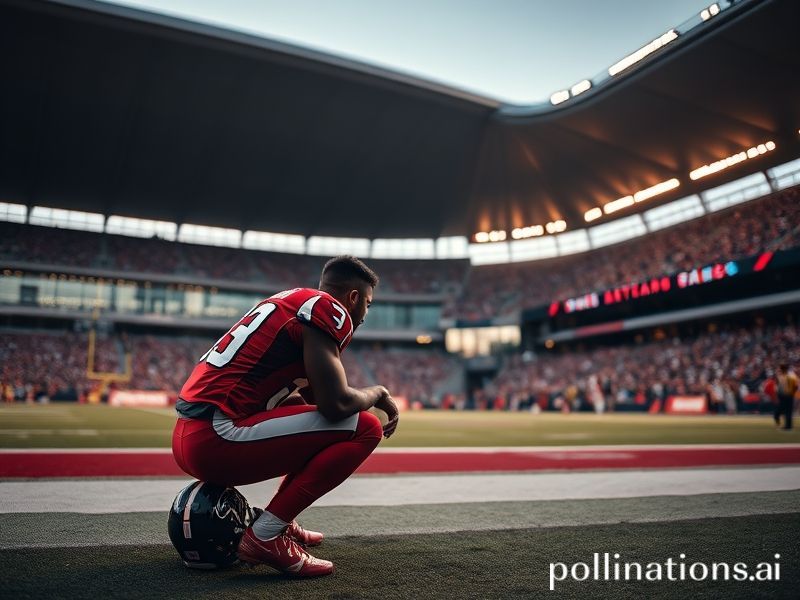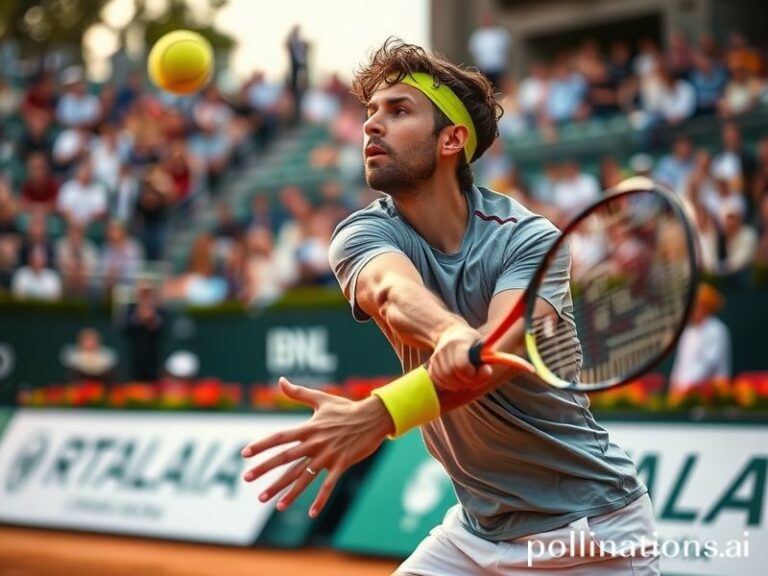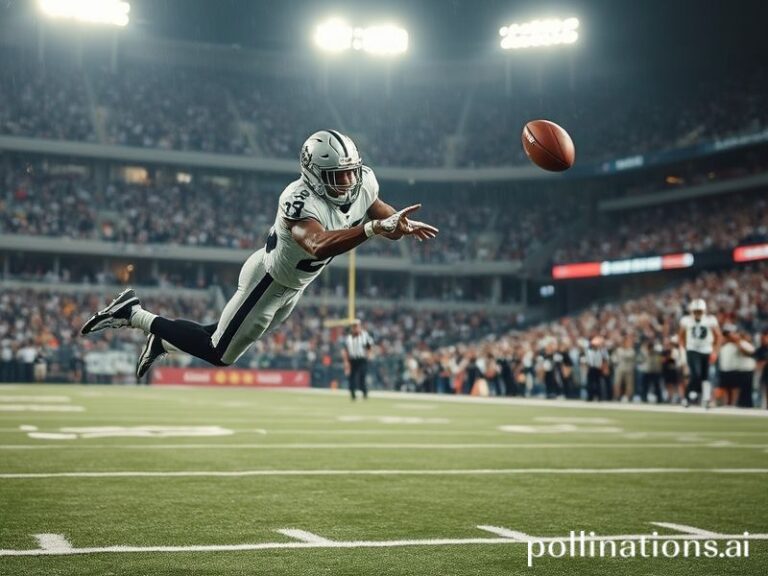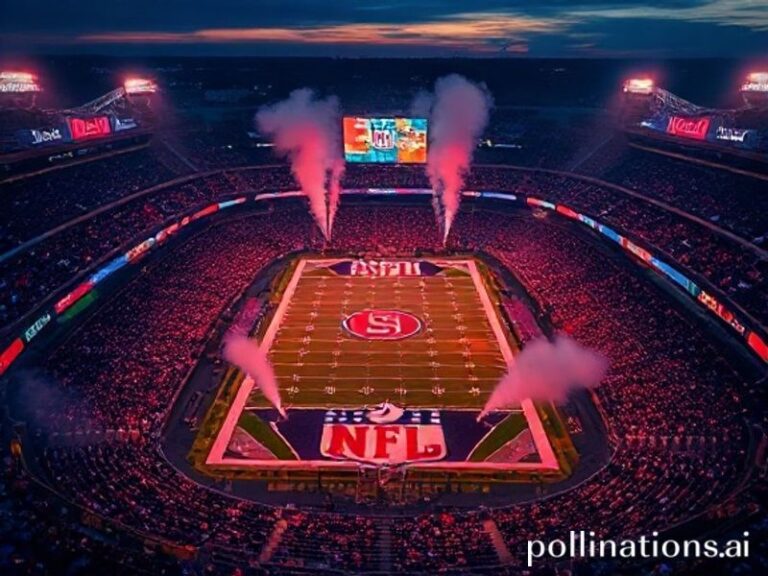How the Atlanta Falcons Became the World’s Favorite Metaphor for Spectacular Collapse
The Atlanta Falcons: A Tragicomic Case Study in Globalized Masochism
By Our Correspondent, filing from an over-air-conditioned airport lounge in Doha where the only thing colder than the AC is the NFL playoff memory bank
If you mention the Atlanta Falcons to a sommelier in Bordeaux, he’ll swirl his glass, sigh theatrically, and mutter something about “notes of heartbreak with an acidic finish.” In Lagos traffic, a danfo driver might shrug, “At least our power cuts only last three hours.” And in a Tokyo izakaya at 2 a.m., salarymen watching condensed highlights will bow politely at the screen, honoring the Falcons the same way they honor salarymen who miss the last train—sympathy for the doomed is universal.
From an international vantage point, the Falcons are less a football team and more a multinational experiment in how far you can stretch the human tolerance for exquisite disappointment. Their 28-3 Super Bowl implosion against New England in 2017 has become the lingua franca of collapse; mention the score in any language and watch strangers nod like war veterans. The game’s broadcast reached 172 countries, which means roughly seven billion people had the chance to witness a masterclass in self-sabotage—useful training for anyone living through late-stage capitalism.
What makes the Falcons globally resonant is how perfectly they mirror the geopolitical mood. They spend big on shiny weapons (see: Kyle Pitts, the 6’6” unicorn drafted to do…something), preach analytics and synergy, then find creative ways to snatch defeat from the jaws of victory. Swap “weapons” for “defense contracts,” and you’ve got half the G20. Their owner, Arthur Blank—co-founder of Home Depot—embodies the benevolent billionaire archetype Americans love and Europeans distrust. He smiles, waves, funds hospitals, yet somehow the roof still leaks metaphorically and literally (see: Mercedes-Benz Stadium’s retractable roof that never quite retracts). It’s the soft-power equivalent of promising vaccine equity and delivering expired AstraZeneca.
Across the Atlantic, pundits compare the Falcons to post-Brexit Britain: once respected, now perpetually rebuilding, and oddly convinced that appointing yet another offensive coordinator—sorry, Prime Minister—will fix systemic rot. In South Korea, fans note that the Falcons’ clock management evokes the national talent for turning five minutes of stoppage time into an existential crisis. Even the Kremlin, never one to miss free propaganda, has reportedly studied the Falcons’ prevent defense as a metaphor for how democracies implode when they overthink the final stretch.
Meanwhile, the Falcons’ global marketing strategy leans into Atlanta’s hip-hop soft power—OutKast, Gucci Mane, the whole trap symphony—exporting Black American cool to markets from Berlin to Bangkok. The merch moves, the Spotify streams spike, and yet the product on the field still resembles a mixtape that never quite drops. International fans buy in because, like crypto, hope is a volatile but addictive currency. You haven’t lived until you’ve seen a drunk Irishman in a Deion Sanders throwback try to explain pass interference to a monk in Luang Prabang.
Of course, cynics will note that the NFL itself is a $18-billion-a-year soft-imperial project, parachuting games into London and Munich the way 19th-century gunboats once sailed upriver. The Falcons, obliging ambassadors, have already lost twice at Tottenham Hotspur Stadium, spreading the gospel of uniquely American despair. Ticket prices start at £85—cheaper than a London pint, marginally more painful. The league’s global footprint now spans 190 countries, which means 190 different ways to translate “they ran the ball three times and still didn’t drain the clock.”
Yet beneath the snark lies a strangely moving truth: rooting for the Falcons is the most honest geopolitical stance left. They remind every time zone that grand narratives end in fumbles, that late-stage empires botch the two-minute drill, that no amount of analytics can vaccinate you against entropy. In a world where supply chains snap, autocrats bluff, and climate reports read like suicide notes, the Falcons offer the purest form of international solidarity: we are all, in the end, one special teams gaffe away from oblivion.
So here’s to the Atlanta Falcons—accidental philosophers of the global condition, spreading empathy one gut-wrenching loss at a time. May their next coach last longer than a lettuce prime minister, and may we keep watching, because what else are we going to do? Read another think piece on degrowth?
Play ball. Or don’t. Either way, the clock’s ticking.







